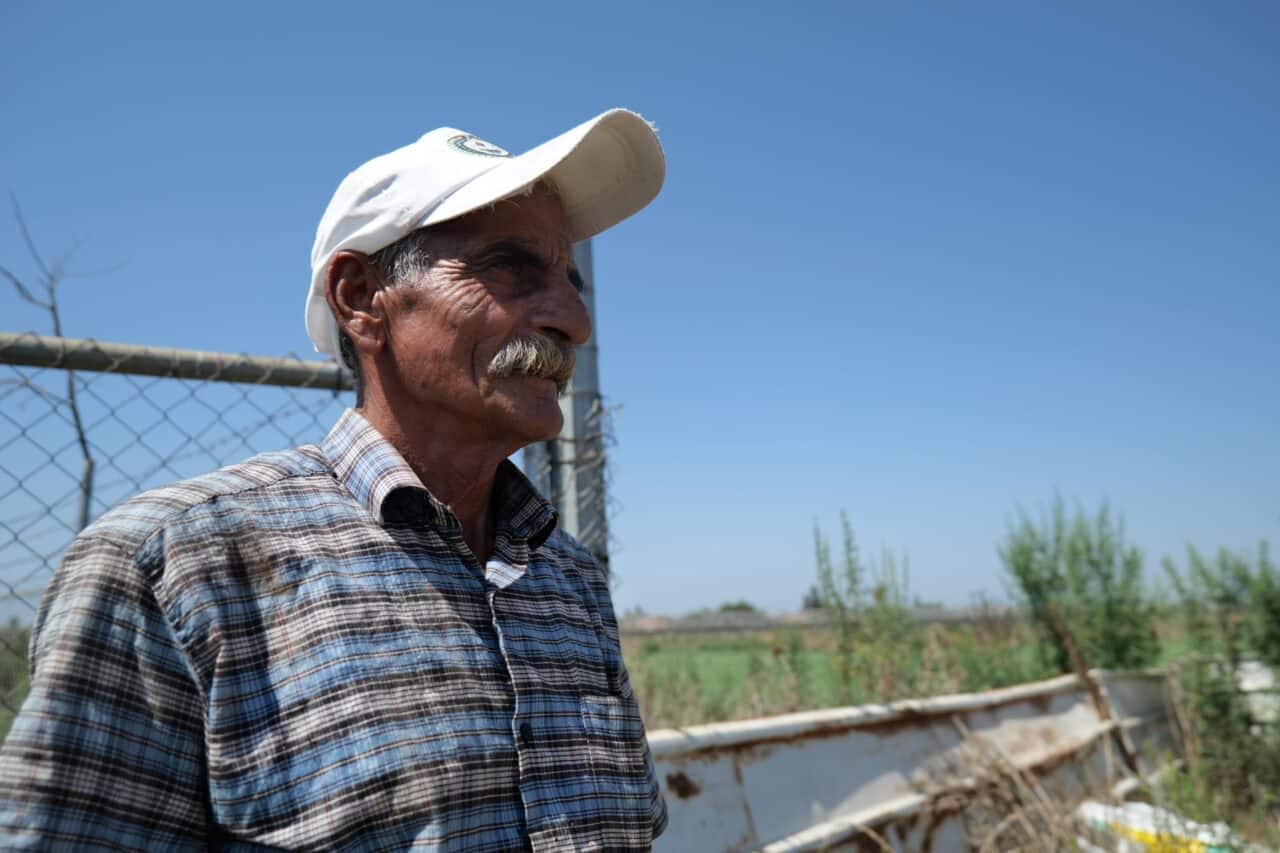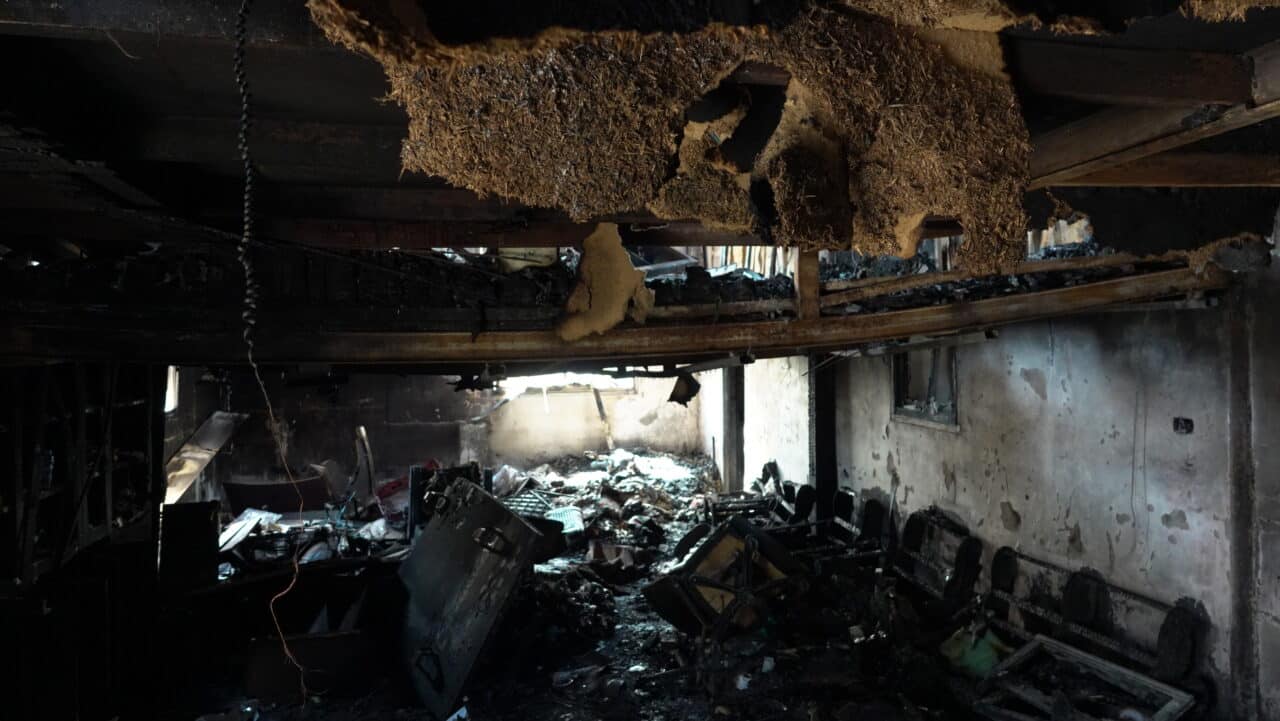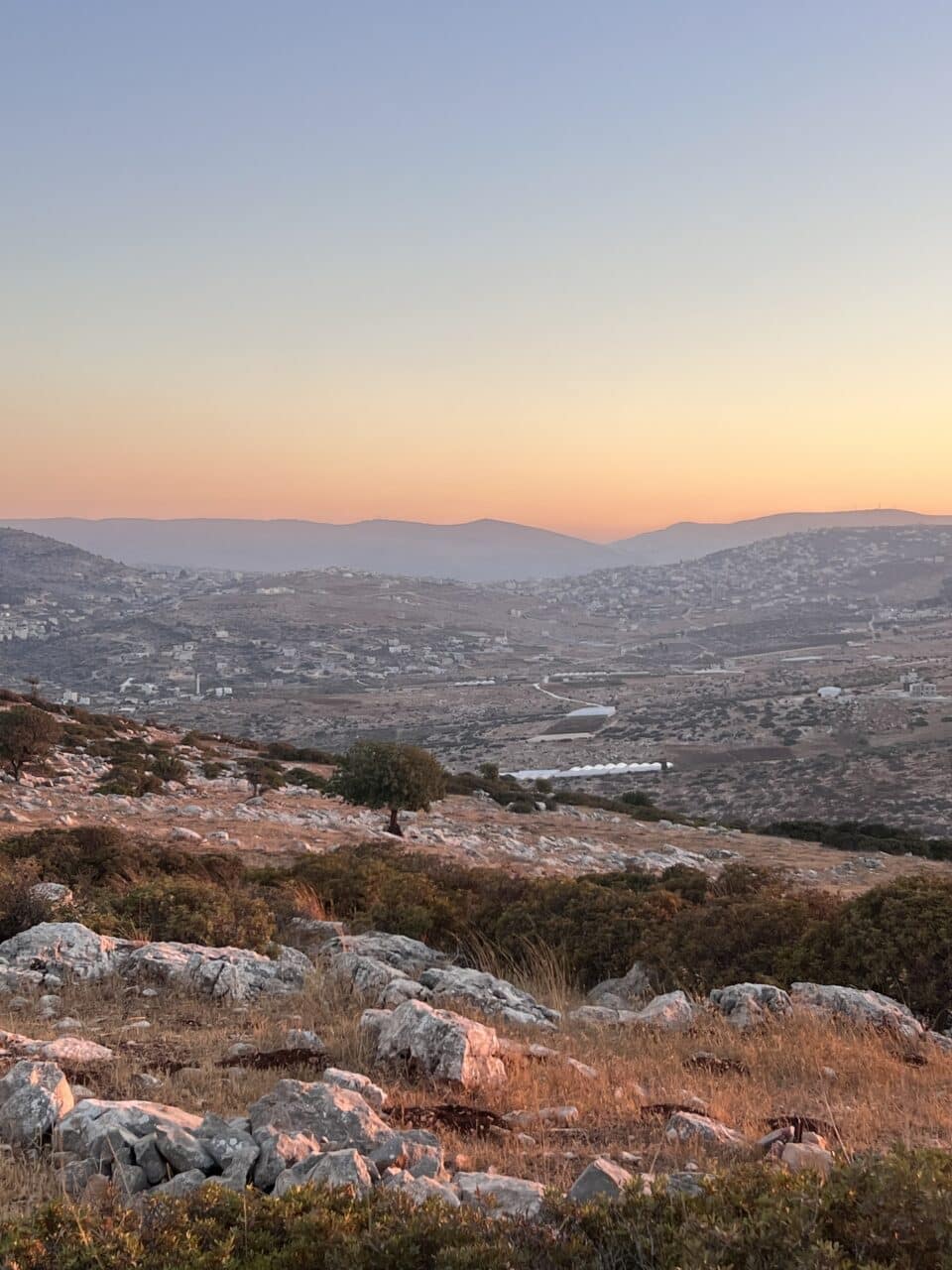-
Palestinian Farmers call for international support this olive harvest
by Diana Khwaelid Riziq Hamid, 65, is not the only Palestinian farmer whose land has been confiscated by Israel. About two weeks ago, Israeli bulldozers bulldozed and vandalized dozens of agricultural dunams in the Shuwaika plain area in Tulkarm, in the northern West Bank. Basim said Alyan is a farmer from the village of Deir […]
-
Settler arson attack on vital West Bank agricultural hub is blow to Palestinian food security
The Mishtil Al-Junaidy Al-Hadith plant nursery in Deir Sharaf, a major West Bank seed distributor and the heart of the region’s agriculture, was set on fire by illegal Israeli settlers on 8 September 2025, costing the owners over three million shekels and seriously damaging the already fragile Palestinian food system. The footage captured by security […]
-
URGENT: A Family Standing Against Israeli Army and Settler Violence, and Imminent Displacement in the Jordan Valley
In the hills of the northern Jordan Valley, one Palestinian family is facing the threat of being displaced from their land. On September 20, the Israeli army issued them a final eviction order — threatening to destroy their tents, farming shelters, animals, and everything they depend on for survival. This family is the last to […]
Action Alert An Nabi Saleh Apartheid Wall Arrests BDS Bethlehem Bil'in Cast Lead Demonstration Denial of Entry Ethnic Cleansing Farmers Gaza Global Actions Hebron House Demolition International law Israeli Army Jerusalem Live Ammunition Nablus Ni'lin Prisoner Ramallah Rubber-coated steel bullets Settlement Settlers Settler violence Tear-Gas Canister Video



